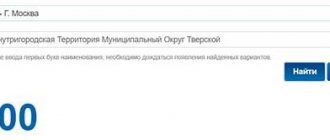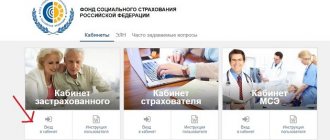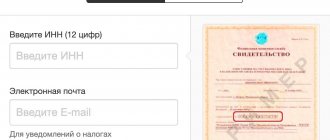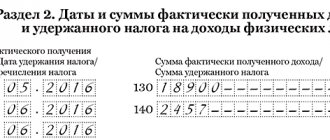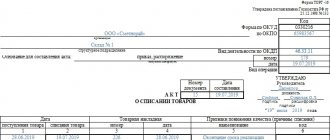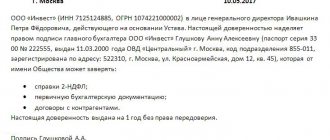The execution of a procurement act occurs in cases where an enterprise purchases certain products (usually food) from an individual. The buyer draws up the document. In addition to the procurement act, a purchase and sale agreement must be concluded between the parties according to the same rules as for transactions between organizations. Most often, this document is used in the field of public catering, when restaurants, cafes, canteens and other catering establishments buy agricultural products from the population.
- Form and sample
- Free download
- Online viewing
- Expert tested
FILES
Why individuals have the right to participate in procurement under 44-FZ
Not only organizations and individual entrepreneurs, but also individuals without the formation of an individual entrepreneur take part in the auction. This is directly stated in paragraph 4 of part 1 of Art. 3 44-FZ. If a citizen has the opportunity to offer goods, work or services, he has the right to participate in procurement. 44-FZ does not establish specific rules for procurement from individuals. The main condition is to comply with the provisions of the Federal Contract System and the requirements of specific procurement documentation.
Civil legislation does not prevent individuals from engaging in business without registering as an individual entrepreneur. Illegal business activities are prohibited (Article 171 of the Criminal Code of the Russian Federation). This means that it is impossible to engage in business without registration and licensing, if these conditions are mandatory. Violators who cause major damage and earn more than 2,250,000 rubles from illegal activities face administrative liability (a fine of up to 300,000 rubles or in the amount of income for a period of up to 2 years, compulsory work for up to 480 hours or arrest for up to 6 months).
Vegetables, fruits, parsley
As already noted, companies often buy vegetables, fruits, meat, fish, etc. from the population. Let's talk about this in a little more detail.
It is important that agricultural products are the property of citizens running private farms. This follows from paragraph 2 of Article 38 of the Tax Code of the Russian Federation, articles 128 and 130 of the Civil Code of the Russian Federation, paragraph 3 of Article 2 of the Federal Law of July 7, 2003 No. 112-FZ.
The same applies to berries, nuts, mushrooms, etc. collected by individuals, caught fish, wild animals caught (Article 20, paragraph 1 of Article 11, paragraph 2 of Article 34 of the Forest Code, Article 221 of the Civil Code of the Russian Federation ). This means that all of the above is completely true when purchasing such products from citizens.
Keep in mind that Article 21 of the Law of the Russian Federation of May 14, 1993 No. 4979-1 prohibits the sale and use of a number of products for food purposes if they have not been subjected to veterinary and sanitary examination.
We are talking about meat, milk, eggs, feed, etc. Therefore, be sure to ask the donors for the appropriate documents (veterinary certificates, etc.). So be sure to ask the donors for the appropriate documents (veterinary certificates, etc.).
Mushrooms - special attention. As is known, they can cause severe poisoning. If you are dealing with such gifts of nature, strictly follow the instructions of the “mushroom” Sanitary Rules SP 2.3.4.009-93 (approved by Resolution of the State Committee for Sanitary and Epidemiological Supervision of the Russian Federation dated August 20, 1993 No. 10). In particular, it is prohibited to buy processed mushrooms from the population (letter of the Ministry of Finance of Russia dated December 12, 2007 No. 03-04-06-01/437).
The organization can inform sellers that they have the right not to pay personal income tax on income:
- from the sale of livestock and crop products grown on private farms (Clause 13, Article 217 of the Tax Code of the Russian Federation). True, this is only possible if several conditions, also listed in this Code norm, are simultaneously met. Otherwise, taxation is carried out in the usual manner (letter of the Ministry of Finance of Russia dated February 18, 2013 No. 03-04-05/6-111);
- sales of wild fruits, berries, nuts, mushrooms, etc. (clause 15 of article 217 of the Tax Code of the Russian Federation);
- sales of furs, wild animal meat and other products obtained as a result of amateur and sport hunting (clause 17 of article 217 of the Code). But for this, the conditions established by paragraph 11 of Art. 1 of the Federal Law of July 24, 2009 No. 209-FZ (letter of the Ministry of Finance of Russia dated August 4, 2014 No. 03-04-06/38361).
However, the use of these concessions, including compliance with the requirements necessary for this, is entirely the concern of citizen suppliers.
The company has nothing to do with it anyway. Her business is the side.
Important
Citizens who sell property that belongs to them by right of ownership independently calculate personal income tax on the income from such a transaction and pay it to the budget. Thus, such transactions will not affect Form 6-NDFL in any way. Moreover, the organization should not provide the fiscal authorities with information on income paid to citizen sellers (that is, 2-NDFL certificates).
Which purchases do individuals not participate in?
Some purchases are not available to individuals. Such a supplier will not be able to submit a bid for the following orders:
- If the auction is only for small businesses. An individual is not a self-employed entrepreneur and has no right to take part in the auction. The customer will refuse the individual without consideration.
- If the customer has established a licensing requirement. A citizen does not receive a business license, which means he cannot participate in such tenders.
- If a supplier from among the members of a self-regulatory organization (SRO) is required to perform work and provide services. A similar situation is that citizens do not become members of SROs.
When an activity does not require licensing and registration of an individual entrepreneur, a citizen has the right to participate in procurement on his own behalf and offer goods, work and services.
Comment on the rating
Thank you, your rating has been taken into account. You can also leave a comment on your rating.
Is the sample document useful?
If the document “Inventory Purchase Act” was useful to you, we ask you to leave a review about it.
Remember just 2 words:
Contract-Lawyer
And add Contract-Yurist.Ru to your bookmarks (Ctrl+D).
You will still need it!
How is such a purchase made?
There are no special rules for processing order documents in the case of admission of individuals. The customer lists in the procurement documentation and notice the documents that he requires from suppliers and attaches the recommended application form for participation in the procurement.
Individuals do not have statutory or registration documents, they only have personal registers. Here's what they show the customer:
- FULL NAME. and registration and residence addresses instead of the name of the supplier and its legal and actual address;
- passport (copy of all 20 pages) instead of an extract from the Unified State Register of Legal Entities or Unified State Register of Individual Entrepreneurs;
- TIN is not a mandatory document for citizens (only for organizations and individual entrepreneurs).
There are no other features or restrictions. An individual participant fills out an application, makes a price offer and participates in the auction. When transferring GWS, a special act is drawn up.
Difficulties arise with the execution of the contract. There are a number of provisions that are mandatory for agreements under 44-FZ between individuals and legal entities:
- Citizens receiving income are required to pay income tax: 13% for residents and 30% for non-residents. The tax agent is the customer organization. We include in the contract a condition to reduce the amount transferred to an individual for goods, work, and services supplied by the amount of personal income tax (Part 13, Article 34 of 44-FZ). If such a clause is not agreed upon with the supplier, the contract is automatically invalidated.
- The situation is similar with insurance premiums. The tax agent is required to transfer 22% to compulsory pension insurance, 5.1% to compulsory medical insurance, and 2.9% to the Social Insurance Fund. All these amounts are deducted from the contract price. The customer is recommended to specify this condition in advance - even at the stage of drawing up procurement documentation.
- Agreements concluded with an individual as the only supplier are drawn up without indicating that the customer acts as a tax agent (Part 15, Article 34 of 44-FZ). The inclusion of this condition is not a violation. The customer will become a violator if he does not transfer the required amount of taxes and contributions.
IMPORTANT!
Contracts with individuals are not taken into account when calculating the volume of purchases for SMEs, since individuals are not small businesses.
We do not withhold personal income tax, we do not submit certificates
Citizens who sell property that belongs to them by right of ownership independently calculate personal income tax on the income from such a transaction and pay it to the budget. This follows from the provisions of Articles 226 and 228 of the Tax Code of the Russian Federation. The purchasing company in this case is not a tax agent, and therefore should not withhold anything. Officials have drawn attention to this more than once (letters from the Ministry of Finance of Russia dated April 11, 2012 No. 03-04-05/3-484 and dated March 12, 2008 No. 03-04-06-01/55, Federal Tax Service of Russia dated August 1, 2012 No. ED-4-3/ [email protected] ). The servants of Themis have an identical point of view (see resolutions of the FAS Central District dated February 17, 2011 No. A35-7103/2009, FAS Volga District dated May 15, 2009 No. A65-6772/2008 and the West Siberian District dated March 27, 2007 No. F04-1746/2007 (32835-A03-7), left in force by the Determination of the Supreme Arbitration Court of the Russian Federation dated July 26, 2007 No. 8910/07).
Thus, such transactions will not affect Form 6-NDFL in any way. Moreover, the organization should not provide the fiscal authorities with information on income paid to citizen sellers (that is, 2-NDFL certificates). After all, Art. 230 of the Tax Code of the Russian Federation establishes this obligation only for tax agents. Officials also think so (letters from the Ministry of Finance of Russia dated March 7, 2014 No. 03-04-06/10185 and dated February 27, 2013 No. 03-04-06/5607, Federal Tax Service of Russia dated May 19, 2008 No. 3-5 -04/19), and judges (resolutions of the Supreme Court of the Russian Federation dated December 6, 2005 No. 72-ad05-3, FAS Moscow District dated June 21, 2010 No. KA-A40/6150-10 and Volga District dated May 18, 2009 No. A12-16391/2008, upheld by the decision of the Supreme Arbitration Court of the Russian Federation dated July 21, 2009 No. VAS-8842/09).
note
If a company bought a car from a citizen and used it for some time in its activities, then when selling such a car, the VAT base is determined in the usual manner. There will be no benefits when selling a car received from an individual as compensation.
Who draws up the act and at what moment?
The procurement act is the primary document. It is drawn up by the customer organization. A procurement act is drawn up when a legal entity purchases goods from an individual, that is, at the time of transfer of technical and technical equipment to the customer, as is the case with a regular act of delivery, acceptance of work or provision of services.
Any responsible employee appointed by order or sent by proxy has the right to purchase or accept products from the public. The procurement act is always signed by the head of the customer organization.
Leave a comment on the document
Do you think the document is incorrect? Leave a comment and we will correct the shortcomings. Without a comment, the rating will not be taken into account!
Thank you, your rating has been taken into account. The quality of documents will increase from your activity.
| Here you can leave a comment on the document “Act of purchase of inventory items”, as well as ask questions associated with it. If you would like to leave a comment with a rating , then you need to rate the document at the top of the page Reply for |
How to fill out the act
For the procurement act, the unified form No. OP-5 is valid (established by State Statistics Committee Resolution No. 132 of December 25, 1998). As an alternative, a purchase agreement from an individual or another document developed by the organization is used. The form of purchase confirmation is determined by management (Ministry of Finance information No. PZ-10/2012).
If the customer uses an independently developed procurement act, it must be approved by a separate order and enshrined in the accounting policy (clause 4 of PBU 1/2008). Be sure to include in the document:
- its name and basic details (number, date);
- information about the customer;
- Contents of operation;
- delivery quantity;
- cost of purchased goods, works and services.
All this information is indicated in the form of the OP-5 act. Here's how to draw up a purchase act:
- Decide on a form - local or unified.
- Provide information about the customer organization - its name, INN, OKPO code.
- Enter the number and date.
- Mark the place of purchase.
- Register the parties to the transaction: the buyer (customer’s employee) and the seller.
- Reveal the contents of the operation. For this purpose, the form provides a tabular section. Enter all products (with codes if possible), indicating the exact quantity, unit of measurement, price and total cost.
- Fill out the text part. The receipt indicates the supplier’s passport details and the amount of the transaction.
The act is signed by the seller, the buyer (the one who accepted or purchased goods, work, services) and approved by the head of the customer organization. If the transaction involved cash, include in the document a block with a receipt indicating that the supplier has received the funds.
Sales worker
In terms of insurance premiums, everything is also smooth: payments under civil contracts under which ownership of property is transferred are exempt from them (clause 4 of Article 420 of the Tax Code of the Russian Federation). The picture is similar with contributions for injury (clause 1, article 20.1 of the Federal Law of July 24, 1998 No. 125-FZ).
But keep in mind: if an organization buys agricultural products from its employees, fiscal officials may well suspect it of paying unofficial wages in this way. With all the consequences regarding personal income tax and contributions.
However, if the company proves that the transactions were real and its actions pursued reasonable economic goals, the arbitrators will most likely support the enterprise. A good example is Resolution of the Federal Antimonopoly Service of the Central District dated February 17, 2011 No. A35-7103/2009. In it, the court stated: the presented papers confirm the reality of the transactions and their reasonable business and economic purposes. Milk was bought from workers for fattening animals, and other products - meat, fish, sugar, grain, flour - for cooking in the canteen. Even the defects in the preparation of documents for the acceptance of agricultural products did not work against the company.
According to the judges, the presence of these errors does not refute the actual availability of these goods.
Required details
A sample act of acceptance and transfer of finished products and goods or meat, etc. is an appendix to the primary documentation. It contains all the necessary information on the names of the participants, about their economic life, etc. The full list can be found in Federal Law 402 of December 6, 2011, Art. 9. In the document under discussion, it is enough for the parties to the transaction to sign, indicating their positions. The columns “buyer” and “seller” with a place for affixing a signature must be clearly marked. They are at the very bottom of the sheet.
Legal subtleties
The content and terms of agreements and acts should not contradict legislative norms, so it is better to entrust the verification to a lawyer. If any comments arise, it is not prohibited to correct the existing copy and send an updated one to the original source. Or ask to make these changes.
The paper itself is not usually considered a transaction. But the question of whether its signing is a legitimate and significant action (aimed at terminating rights and obligations) must be resolved comprehensively. Approach each situation individually. That is, see whether the document serves as the only confirmation of the transfer of property or is it secondary (appendix). In the first case, this is a simple act of acceptance and transfer of goods without a contract.
When it leads to legal consequences:
- When primary documentation is missing initially, and it fully reflects the completion of the transaction.
- It is signed by competent persons to coordinate their will (in detail, including the details and all the nuances).
Both points must be observed for this paper to receive its full value. And so that it serves as the basis for transferring rights to the new owner, that is, it records the completion of the transaction from beginning to end. This is not possible if there are documented agreements. Then this document will only serve as additional evidence in the case.
Since signed copies certify the fulfillment of obligations, they can be used for defense in court. For example, when identifying forgery (the presence of delivery signatures when it was not actually executed) or when products do not conform (which turned out to be later).

